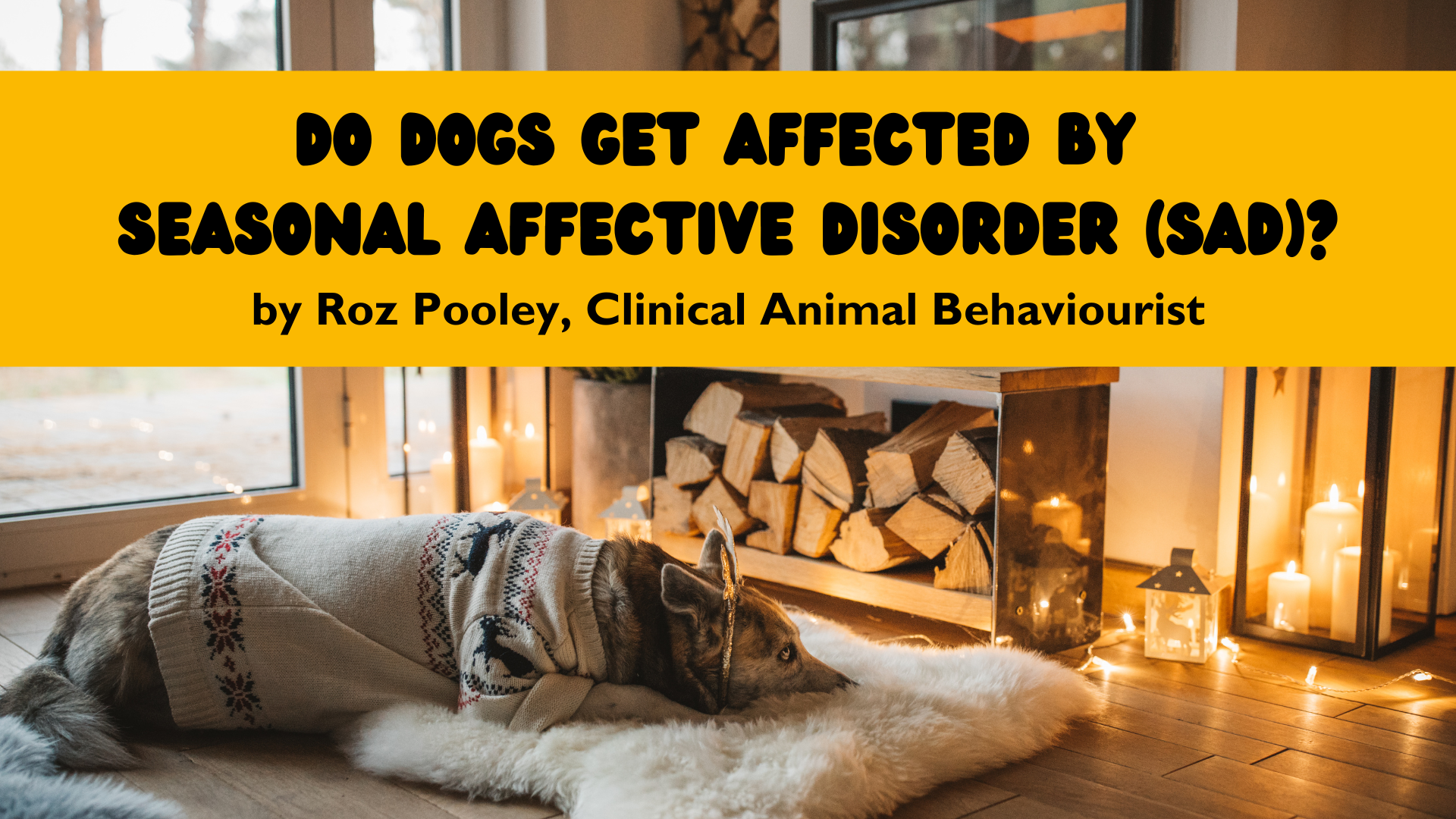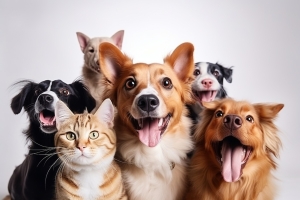Do dogs get Seasonal Affective Disorder?

By Roz Pooley, The Mutty Professor
The cold, dark winter months can feel pretty doomy and gloomy for many people, even bringing on symptoms of Seasonal Affective Disorder (SAD) in some.
Does SAD affect dogs?
Scientists aren’t yet sure if they suffer from SAD in the same way humans do. However, many owners do report a change in behaviour, including lethargy and a depressive-like state in dogs. This change in behaviour could be for a few reasons.
1. The clocks going back.
Most dog owners are likely familiar with the challenges in getting their dogs used to their new routine with many asking for dinner an hour earlier than usual or waking up too early. The change in time and subsequently, reduced daylight may affect your dog’s circadian rhythm, which may affect their behaviour.
2. Reduced Exercise & Mental Stimulation
It may be harder for some owners to motivate themselves to get out in the cold and wet weather to walk their dog, or their dog may not enjoy walking in the cold and wet weather or darkness.
Dogs who normally enjoy time in the garden may now be spending more time indoors as owners keep the door shut to keep the house warm.
It may be too easy for dogs and owners to end up cuddled up on the sofa under a blanket together, which may result in a decrease in any mental stimulation activities that would be done normally. This can decrease Dopamine and Serotonin levels, which can affect a dog’s behaviour.
3. Stiff Joints
Muscle and joint stiffness can be worse in colder conditions and pain can result in lethargy or other behaviour changes, such as increased irritability.
4. Weight Gain
Many of us eat more in the winter as the body requires more energy to keep itself warm, but also eating can be an activity we do in absence of activity.
Dogs may get an increased number of titbits from owners snacking more, or they may be hungrier or ask for food because they are bored. These factors, in addition to reduced exercise for some dogs, can result in weight gain- which can affect a dog’s behaviour.
5. They’re cold!
Senior dogs or those with thin coats will really feel the cold, which may make them less motivated to go outside or move from their warm sleeping spot.
Dogs who have recently travelled or originate (as a breed) from warmer climates may particularly struggle with colder weather.
Significant changes in climate have been correlated with an increased likelihood of humans behaving aggressively- so it’s entirely possible dogs who are genetically predisposed to live in a warmer country or who are from a warmer country may struggle with a sudden drop in temperature.
6. The mood and behaviour of their owner
Owners who feel lethargic and even depressed may project their feelings onto their dogs, worrying that they too feel similar, even if they don’t. However, research shows that dogs can be affected by their owner’s emotions and stress- which could affect their behaviour.
So, how can we help our dogs during the winter months?
Chewing is a feel-good activity for dogs, increasing the calming neurotransmitter GABA alongside Dopamine and Serotonin. Nutriment bones or the dehydrated chew range is perfect for most dogs.
Keep them warm by ensuring they have a variety of sleeping spots next to and away from heated areas of the home. Some dogs enjoy having a blanket to snuggle under.
For dogs with a thin coat, it’s sensible to fit them with a house fleece/jumper and to get them a coat that will keep them warm and dry for their walks.
Exercise your dog as often as you can, trying to match the frequency and durations that you would in warmer months. If this is challenging to fit in around your work, especially if your dog doesn’t like the wet and dark, then consider asking friend or dog walkers for support. If that’s not possible, try and increase your dog’s exercise with play at home or in the garden. You could even look into doing some canine body conditioning exercises as a way of helping your dog move their body and burn some calories.
Mental Stimulation games can help prevent boredom in your dog. Scattering treats in the garden or around the house can encourage your dog to move around, and using their nose to search for food can be very tiring. Engaging their brain through fun trick training using positive reinforcement can further help burn off some physical and mental energy.
Sun lamps are not proven to work for dogs, but if you think both of you may benefit from one then there’s no harm in buying one!
If you’re particularly worried about your dog’s behaviour changing, it’s sensible to get them down to the vet for a check over.





